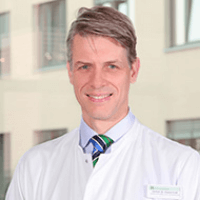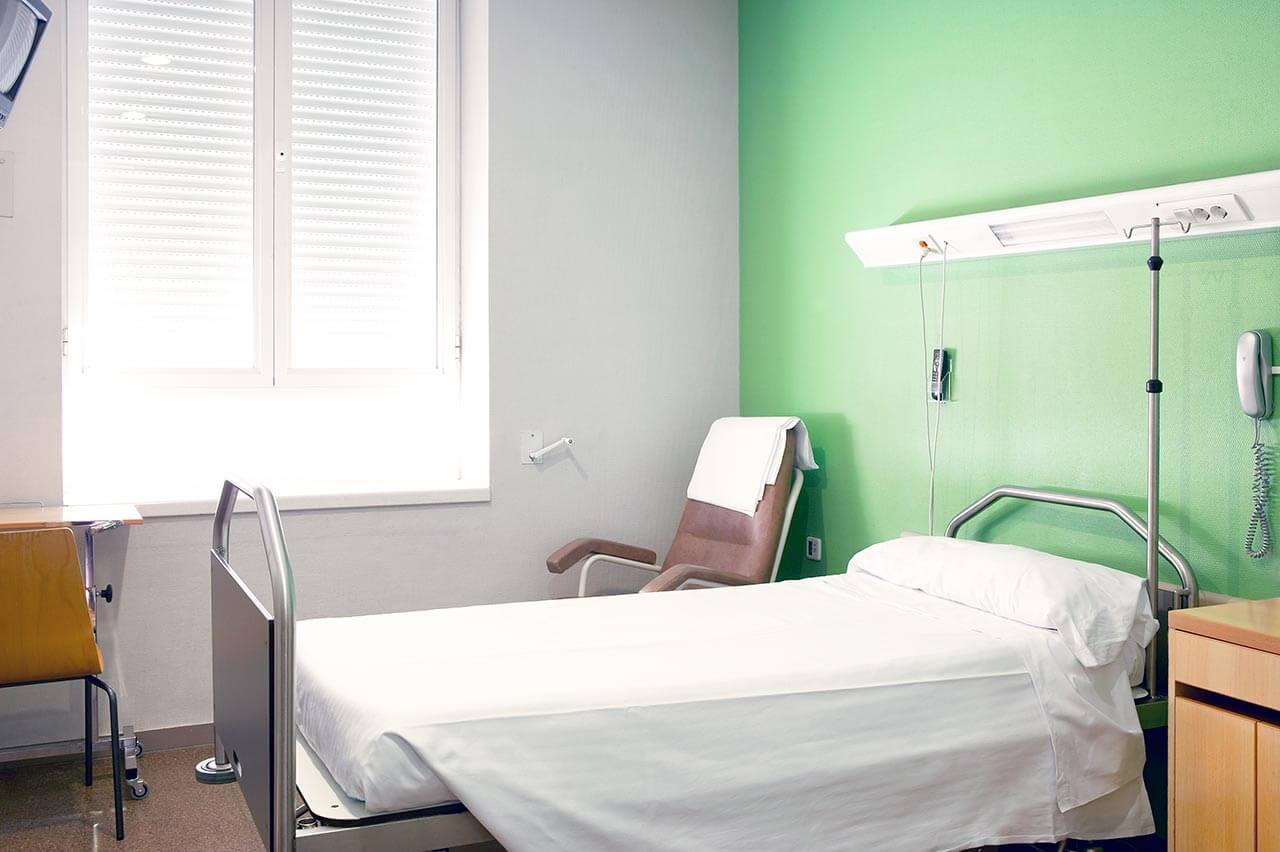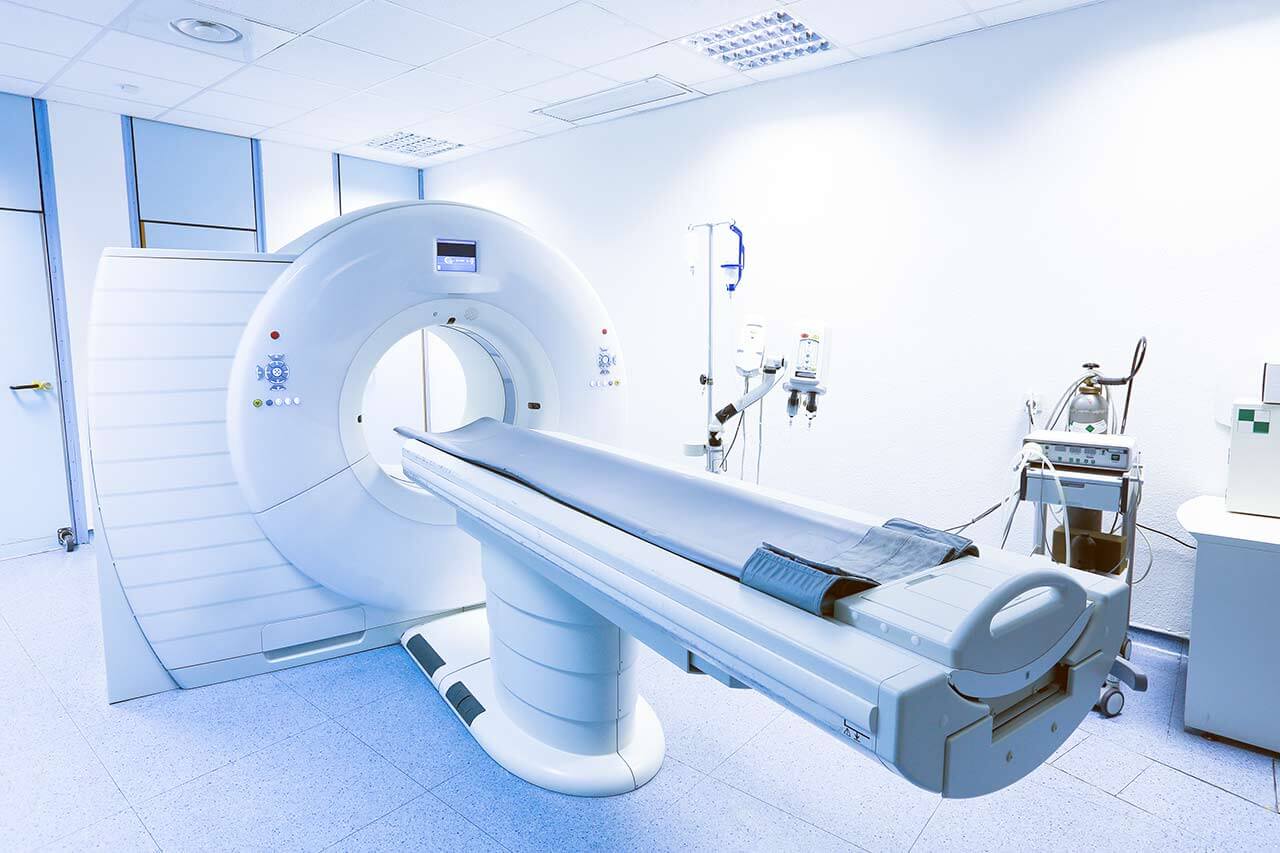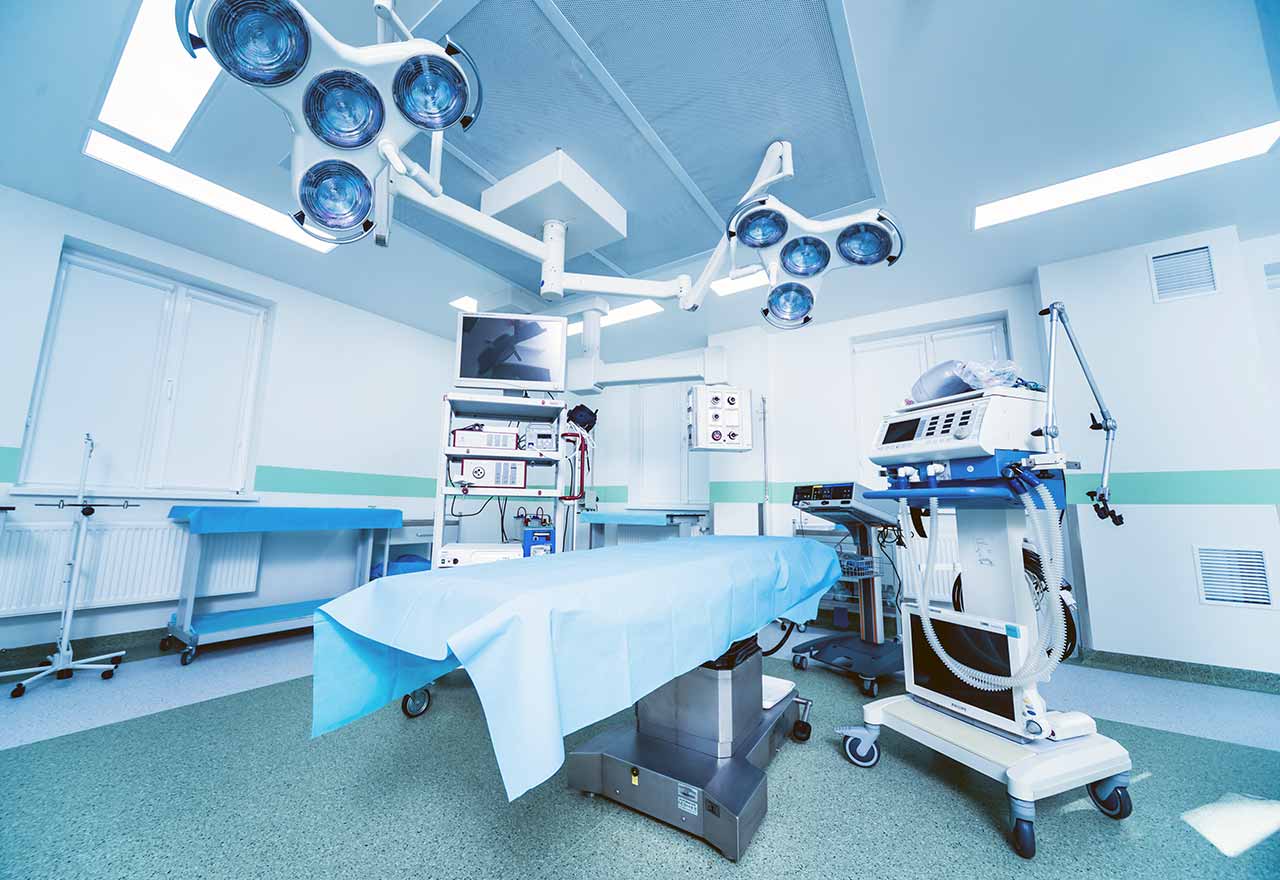
The program includes:
- Initial presentation in the clinic
- clinical history taking
- physical examination
- review of medical records
- laboratory tests:
- complete blood count
- general urine analysis
- biochemical analysis of blood
- indicators of inflammation
- indicators of blood coagulation
- X-ray/MRI examination of the knee
- preoperative care
- total knee replacement, cost of the implant is included
- symptomatic treatment
- control examinations
- the cost of essential medicines and materials
- orthopedic appliances
- physiotherapy
- nursing services
- full hospital accommodation
- explanation of future recommendations
How program is carried out
Preliminary preparation for surgery: quitting smoking and drinking alcohol 2 weeks before surgery; cancelling non-steroidal anti-inflammatory drugs (diclofenac, ibuprofen); cancelling anticoagulants (warfarin); normalization of body mass, if possible.
Preoperative examination, including consultation with an anesthesiologist and necessary related specialists. X-ray examination and MRI of the knee joints are performed. The examination takes 1-2 days.
Surgical knee replacement. The operation is performed under general anesthesia and lasts for about 2 hours.
Postoperative care. During the first day after the intervention the patient stays in the intensive care unit, under round-the-clock medical supervision. After that, with a smooth course of the postoperative period, the patient is transferred to a regular ward and the drains are removed. The range of motion expands gradually, from light toes movements to walking. Walking with the use of walking aids is allowed in 3-5 days after the operation. Normal walking without the use of walking aids (crutches, cane) will become possible in 6-12 weeks.
Finally, the attending physician will evaluate the results of control examinations, schedule the date of discharge from the hospital and give you detailed recommendations for further follow-up and treatment.
Required documents
- Medical records
- X-ray examination, MRI/CT scan (if available)
Service
You may also book:
 BookingHealth Price from:
BookingHealth Price from:
About the department
The Department of Adult and Pediatric Orthopedics, Traumatology and Hand Surgery at the HELIOS Clinic Krefeld offers the full spectrum in these medical focuses. The department specializes in the diagnosis and treatment of all diseases of the musculoskeletal system in adults and children, trauma of any severity, including sports injuries, endoprosthetics, hand and foot surgery. The goal of the department's specialists is to effectively treat and restore the quality of patients’ lives. The department is headed by Prof. Dr. med. Clayton Kraft.
The main focuses of the department include diagnosis and treatment of spinal diseases. The department has all the modern methods for conducting accurate diagnostics: radiography of the whole spine, CT, MRI, PET-CT of the spine, discography and myelography of the entire spine, neurological examinations (for example, examinations of nerve conduction velocity, electric excitation of muscles with alternating current), etc. After a comprehensive diagnosis, the doctor prescribes the best treatment. To date, many problems with the spine can be effectively eliminated with the help of conservative therapies. Nevertheless, in certain clinical situations, surgical intervention is required, for example, in case of a tumor, infection, fracture, instability, severe axial displacements. The department practices a variety of surgical techniques, ranging from minimally invasive and microsurgical interventions and ending up with complex reconstructive interventions on the spine. Much attention is paid to sparing minimally invasive and dynamic surgical techniques for the treatment of fractures, inflammations, nerve root and spinal cord compression, tumors and hernias of the intervertebral discs, which guarantee minimal risks and extremely rapid restoration of patient’s mobility.
The department also specializes in performing arthroscopic interventions, which are often used to treat many pathologies, including degenerative diseases and joint injuries. When performing these sparing operations, doctors use advanced tools, with which two small incisions in the joint region are made, and a special camera. Thus, the surgeon sees the entire surface of the joint on the screen and can perform the necessary manipulations to eliminate injuries or pathological changes.
In the field of endoprosthetics of special interest is the implantation of hip, knee, shoulder, elbow and ankle endoprostheses. In addition, there are performed many operations to replace endoprostheses and revision interventions. Preference is given to minimally invasive techniques. The specialists of the department use only high-quality endoprostheses from the world's leading manufacturers.
The next focus of the department is the treatment of foot diseases. Here are performed minor operations on the foot and toes, which aim to eliminate discomfort and improve functions, as well as operations for the treatment of severe foot injuries, congenital or acquired developmental defects and the consequences of accidents.
The department offers the full range of services in the field of hand surgery. It provides treatment of hand injuries of any severity, reimplantation and treatment of limitations caused by accidents. To ensure the most effective treatment, there are performed modern diagnostic tests, for example, conventional and dynamic X-ray tests, CT, MRI, three-phase scintigraphy of the skeletal bones, scintigraphy with labeled leukocytes to detect inflammation or degenerative diseases, electrophysiological tests to measure nerve conduction, muscle strength and other diagnostic examinations.
It should be noted that the medical team of the department has a unique experience in the treatment of orthopedic diseases in children and adolescents. To provide comprehensive treatment, there is maintained close cooperation with the Department of Pediatrics and Adolescent Medicine, the Social Pediatric Center, the Department of Pediatric Surgery and other departments of the clinic. For each young patient doctors select an individual treatment strategy according to the age, general health and clinical situation.
To completely restore mobility, eliminate and alleviate pain in adults and children, the department provides professional physiotherapy, ergotherapy, neurophysiological therapy.
The range of medical services of the department includes:
Spinal diseases
- Conservative therapy
- Intensified pain therapy (intravenous and/or oral)
- SpineMED (computerized distraction)
- Ultrasound-guided nerve root blockade
- Infiltration and sclerotherapy of painful vertebral joints (including facet joint thermocoagulation)
- Sacroiliac joint infiltration
- Neural therapy
- Physiotherapy
- Magnetic therapy (treatment by magnetic field)
- Electrotherapy
- Balneotherapy
- Traction
- Cryotherapy and heat therapy
- Other treatments
- Surgical treatment
- Microsurgical operations on the intervertebral discs of the cervical, thoracic and lumbar spine
- Removal of the intervertebral discs of the cervical spine (microsurgical method) followed by the implantation of prostheses
- Facet joint denervation (endoscopic operation)
- Expansion of intervertebral foramen (endoscopic operation) and removal of herniated intervertebral discs
- Microsurgical treatment of spinal stenosis
- Stabilization of the cervical, thoracic and lumbar spine (access from the back, chest, abdominal cavity)
- Treatment of vertebral fractures with the introduction of bone cement by a minimally invasive method (kyphoplasty)
- Osteosynthesis by Albee-Delbet with the correction of the spine, for example, in scoliosis or displaced vertebral bodies (spondylolisthesis)
- Replacement of the vertebral body (also of several vertebrae with access from the front and back)
- Operations to correct scoliosis in adults and children
- Operations under the control of navigation systems
- Other surgical interventions
Arthroscopic surgery
- Shoulder arthroscopy
- Treatment of injuries and dislocations of the acromial extremity of clavicle
- Treatment of calcifying tendonitis of the shoulder
- Treatment of tendon ruptures
- Shoulder stabilization in its dislocation and instability
- Treatment of the "frozen shoulder" syndrome
- Treatment of cartilage damages (in the early stages)
- Treatment of other diseases
- Elbow arthroscopy
- Treatment of elbow calcification
- Smoothing of the cartilage surface and treatment of cartilage damages
- Stabilization of dislocated elbow
- Treatment of elbow stiffness
- Treatment of other diseases
- Wrist arthroscopy
- Smoothing of the cartilage surface and treatment of cartilage damages
- Treating tendon ruptures
- Treatment of adhesions and painless restoration of mobility
- Treatment of other diseases
- Hip arthroscopy
- Reconstruction in ligament and articular lip ruptures
- Treatment of cartilage damages (in the early stages) to prevent joint replacement surgery
- Smoothing of the hip bone tissue
- Treatment of other diseases
- Knee arthroplasty
- Treatment of rupture of the cruciate ligament and its replacement with endogenous tendons
- Treatment of meniscus rupture by suturing or sparing partial resection
- Elimination of cartilage defects by smoothing, cartilage or bone transplantation, cultivation and transplantation of endogenous cartilage cells
- Elimination of patella problems
- Treatment of other diseases
- Ankle arthroplasty
- Cartilage smoothing and treatment of cartilage damages by transplanting patient's own cartilaginous cells
- Treatment of necrosis and bone defects
- Treatment of ankle stiffness
- Treatment of other diseases
Endoprosthetics
- Surgery to replace hip, knee, shoulder, elbow and ankle
- Operations to replace endoprostheses
- Revision joint surgery
- Minimally invasive interventions
- Other treatments
Traumatology
- Conservative treatment
- Application of a cast
- Intensive physiotherapy, lymphatic drainage
- Intensified pain therapy
- Other treatments
- Surgical treatment
- Treatment of life-threatening multiple injuries
- Wide range of osteosynthesis procedures for all bones
- Surgical treatment of spinal injuries
- Full range of minimally invasive arthroscopic interventions for the treatment of joint injuries (also sports ones)
- Treatment of complex hand injuries
- Reconstruction of tendons in the area of the arm and forearm
- Other treatments
Foot diseases
- Conservative treatment
- Consultations on the selection of the right shoes and insoles
- Intensive physiotherapy, lymphatic drainage
- Intensified pain therapy
- Other treatments
- Surgical treatment
- Differentiated and individual therapy concept for the treatment of hallux valgus
- Correction of hammer-shaped, hook-shaped fingers and other toe deformities
- Joint-preserving surgery and surgery to stabilize big toe arthrosis
- Ankle arthroscopy in degenerative diseases, such as rheumatism, arthritis, after accidents, etc.
- Joint-preserving surgery and surgery to stabilize all all other joints of the foot and ankle
- Decompression surgery for the treatment of heel spurs
- Differentiated concept of therapy for pain in the metatarsal bone (for example, Morton's metatarsalgia)
- Corrective surgery for congenital or acquired foot deformities (for example, flat feet, club foot, pointed or hollow foot)
- Corrective surgery to eliminate the consequences of foot and ankle injuries after accidents
- And other treatment methods
Hand surgery
- Conservative treatment
- Intensive pain therapy
- Intensive physiotherapy, lymphatic drainage
- Other treatments
- Surgical treatment
- Minimally invasive operations for the treatment of pain syndrome due to pinched nerve (carpal tunnel syndrome, cubital tunnel syndrome, etc.)
- Surgical treatment of Dupuytren's contracture
- Surgical treatment of rhizarthrosis
- Stabilizing and joint-preserving interventions on all joints of the hand and wrist joint
- Wrist arthroscopy in degenerative diseases (for example, in rheumatism or arthritis)
- Operations to treat tennis elbow and golfer’s elbow
- And other treatments
Bone and soft tissue septic surgery
- Treatment of acute and chronic bone infections (osteomyelitis)
- Restorative interventions for the treatment of extensive defects in tubular bones by lengthening
- Treatment of acute and chronic infections of the skin and soft tissues
- All interventions to correct defects (including free flap plastic surgery, microsurgical transplantation of the patient's own tissue)
- Sanitation for pseudoarthrosis caused by inflammation after bone fractures
- Treatment of bone and soft tissues infections in diabetic foot syndrome
- Treatment of infections caused by multiresistant pathogens
- Treatment of chronic wounds
- Treatment of spinal inflammation (spondylitis/spondylodisitis)
- And other treatments
Pediatric orthopedics
- Treatment of congenital and acquired foot deformities (including valgus foot, flat feet, pointed foot, hallux valgus, hallux varus congenitus, clubfoot)
- Conservative and surgical treatment of hip dysplasia and hip dislocation
- Treatment of the femoral head necrosis in children (Perthes disease) and displaced epiphysis of the femoral head
- Treatment of shortened lower extremities and axial disorders
- Treatment of spinal diseases
- Treatment of inflammatory joint changes, including rheumatic diseases
- Treatment of orthopedic diseases in congenital syndromes
- Treatment of orthopedic problems in adults caused by pediatric orthopedic diseases
- Corrective surgery for the improvement of statics in degenerative joint diseases
- And other treatments
Curriculum vitae
- 1990 - 1996 Study of Medicine at the Heinrich Heine University Düsseldorf and at the Friedrich-Wilhelm University of Bonn.
- 1996 Defense of doctoral dissertation in the field of surgery.
- 2004 Habilitation and Venia Legendi in Orthopedics.
- 2011 Visiting Professor at the Friedrich-Wilhelm University of Bonn.
- 2012 Professorship course at the University of Bonn (trainees).
Professional Career
- 1997 - 1998 Internship, Department of Traumatology, University Hospital Bonn.
- 1998 - 2003 Research Assistant of the Department of Orthopedics, University Hospital Bonn.
- 2003 - 2005 Senior Physician of the Department of Orthopedics, University Hospital Bonn.
- 2005 - 2007 Leading Senior Physician and Deputy Head of the Department of Orthopedics, University Hospital Düsseldorf.
- Since 2007 Head of the Department of Adult and Pediatric Orthopedics, Traumatology and Hand Surgery at the HELIOS Clinic Krefeld.
- Since 2015 Head of the Professional Group on Orthopedics and Traumatology of the network of HELIOS clinics.
Membership in Professional Societies
- Member of the German Society of Orthopedics and Traumatology.
- Member of the Association of Leading Orthopedists (VLO).
- Member of the Working Group on Endoprosthetics.
- Member of the Working Group on Osteosynthesis (graduates) of the International Association for the Study of Osteosynthesis.
- Member of the International Association for the Study of Spinal Osteosynthesis.
- Member of the German Association of Osteologists.
- Member of the German Society of Spinal Surgery (DGW).
- Member of the International Society of Minimally Invasive Spinal Surgery (ISMISS).
Photo of the doctor: (c) Helios Klinikum Krefeld
About hospital
Founded in 2014, the HELIOS Clinic Krefeld is one of the most modern medical facilities in Germany today. A team of highly qualified specialists, innovative medical equipment and comfortable accommodation conditions – the clinic has everything to make the treatment run smoothly and efficiently. Having crossed the threshold of the clinic, you will feel the home-like cozy and modern atmosphere. Perhaps you will even forget that you are in the clinic.
As a maximum care medical center, the clinic covers practically all areas of medicine: cardiology, gastroenterology, oncology and hepatology, nephrology, diabetology and rheumatology, general, abdominal and minimally invasive surgery, dermatology and venereology, angiology, cardiac surgery and other medical fields.
Thanks to a continuous fruitful cooperation with the world’s leading universities, research and medical centers, the clinic provides the highest treatment standards.
The doctors of the clinic take up the treatment of the most severe cases, including serious spinal injuries and diseases related to the disorders of the central nervous system. The nursing staff of the clinic regularly undergoes both advanced and special trainings, which contributes to a high-quality, professional patient care at all stages of treatment.
The clinic adheres to a strict quality management system. Not only the patient care, but also the entire treatment process (including monitoring and patient care after the operation) are subject to the quality certification.
Photo: (c) depositphotos
Accommodation in hospital
Patients rooms
The patients of the HELIOS Clinic Krefeld live in comfortable single and double rooms. Each room has a bathroom with a toilet and shower. The room is furnished with a comfortable bed, bedside table, TV, radio and telephone. Each room has access to the Internet, which can be used at extra charge.
The clinic offers an excellent infrastructure: a beautiful park with playgrounds for children, a cafeteria, a chapel, which regularly hosts church services, a prayer room for Muslims, a beauty salon, a shop with a large selection of magazines, drinks and personal hygiene items, an ATM and a large parking lot.
Meals and Menus
The restaurant of the clinic offers three meals a day. For breakfast, lunch and dinner, it serves a large selection of dishes that will please even spoiled gourmets. Every day, the menu features vegetarian and dietary dishes. It is possible to order any dish without leaving the room. In addition, the clinic has a cafeteria where one can always have a cup of aromatic coffee, hot tea or enjoy an exquisite refreshing drink. Also, the cafeteria menu offers many tasty snacks and dishes.
Further details
Standard rooms include:




